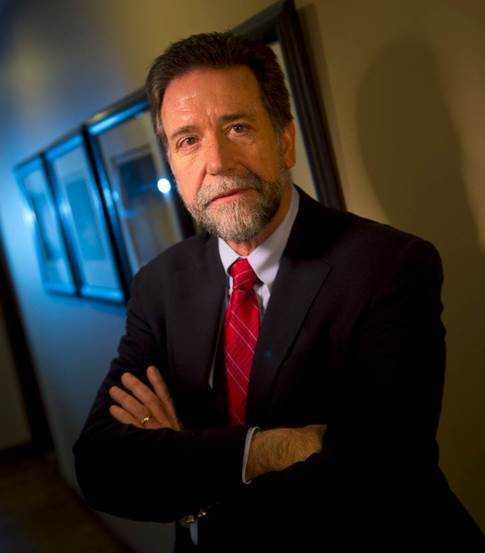Recent Blog Posts
What Types of Discipline Can I Face Against My Nursing License?

Nurses play an essential role in our medical system, and both doctors and patients rely on them to provide quality care. When you have worked to obtain your professional nursing license, you will want to be sure to do everything you can to maintain that license and continue working in your chosen field. If you are facing discipline to your nursing license, you will want to work with an attorney to understand your options.
Wisconsin Board of Nursing
As part of the Wisconsin Department of Safety and Professional Services (DSPS), the Board of Nursing issues licenses to registered nurses and licensed practical nurses. It is also tasked with establishing standards for nursing schools and investigating complaints against nurses, with the goal of keeping patients free from negligence, carelessness, and harm.
What Healthcare Directives Should Be Included in My Estate Plan?

No matter what stage of your life you are in, it is important to establish an estate plan. Whether you are 18 or 88 years old, planning for the future can make life for yourself, as well as your family and friends, a lot easier should unexpected events arise.
What Is a Healthcare Directive?
A healthcare directive allows you to choose what forms of medical care you want to receive in certain situations. This may include any life-sustaining treatments you want to be performed if an injury or illness results in a terminal condition or a persistent vegetative state without any chance of recovery. A healthcare directive ensures you get exactly what you want if you are ever unable to say so.
Directives to Include in Your Estate Plan
Should I Submit to a Field Sobriety Test When Pulled Over for OWI?

By Attorney Nicole Masnica
Operating a motor vehicle while under the influence of alcohol, illegal drugs, or even certain prescription medications is a serious offense, and a conviction for such an offense may result in a number of significant consequences. An OWI conviction can carry mandatory fines, time in jail or prison, revocation of your driving privileges, installation of an ignition interlock device, and required addiction counseling.
While drunk driving is commonly referred to as “driving under the influence” or DUI, in Wisconsin, it is known as “operating while intoxicated” or OWI. Being pulled over on suspicion of drunk driving can be a frightening experience, and many drivers do not know what to expect. Whether this is the first time you have been arrested for OWI or you have previously been arrested or convicted, it is important to consult with an experienced criminal defense attorney to determine how to minimize the consequences you may face.
What Charges Require a Person to Register as a Sex Offender in Wisconsin?
By Attorney Nicole Masnica
 Sex crimes, also known as sensitive crimes, are treated very seriously in Wisconsin. While any criminal conviction can substantially affect your future opportunities, a conviction for a sex offense will carry with it collateral consequences that will impact nearly every aspect of your life for years to come. It is important to understand what might be at stake if you have been accused of a sex offense in Wisconsin.
Sex crimes, also known as sensitive crimes, are treated very seriously in Wisconsin. While any criminal conviction can substantially affect your future opportunities, a conviction for a sex offense will carry with it collateral consequences that will impact nearly every aspect of your life for years to come. It is important to understand what might be at stake if you have been accused of a sex offense in Wisconsin.
The Charges
According to Wis. Stat. §301.45, an individual found guilty of any of the following offenses is required to comply with the sex offender registry:
- First, second, or third-degree sexual assault of an adult
- First or second-degree sexual assault of a child
- Repeated sexual assault of the same child
When Do RICO Charges Apply in White Collar Criminal Cases?

By Attorney Nicole Masnica
White collar crimes such as fraud, money laundering, or securities and antitrust violations, bear severe punishment and a conviction for these types of charges can affect the rest of your life. These criminal investigations tend to be lengthy and complex, and a defendant may undergo a thorough sweep of their financial records. These investigations can be especially concerning if there are potential federal charges, including through the RICO Act. However, this act is not always fully understood, and defendants will want to determine how these types of charges may affect their case.
The RICO Act
In 1970, the United States Congress passed the Racketeer Influenced and Corrupt Organizations Act, also known as RICO, with the purpose of seeking to eradicate organized crime in the United States. Under this law, a person may face federal charges for participating in a racketeering activity that was part of an enterprise that involved interstate commerce.
Which Parties Can Be Held Liable for Truck Accident Injuries?
If you have been involved in a trucking accident, determining who is at fault can be complicated. From the driver to the manufacturer of the truck, there can be many different liable parties that may be held responsible for your injuries. Identifying the responsible party or parties can allow you to pursue the compensation you deserve, ensuring that the damages you have experienced will be fully addressed.
Who Is Responsible?
According to the Federal Motor Carrier Safety Administration (FMCSA), there were approximately 450,000 crashes involving large trucks that were reported to the police in 2017, and out of these, 4,237 accidents (1 percent) resulted in fatalities, and 344,000 collisions (23 percent) involved injuries. When it comes to trucking accidents, multiple parties may be responsible, including:
- The truck driver - If the driver of the vehicle involved in the accident broke the law, was not adequately trained, or was intoxicated by alcohol or drugs, he or she may be liable for injuries that occurred.
What Does it Take to Obtain a Criminal Pardon in Wisconsin?
In June 2019, newly-elected Wisconsin Governor Tony Evers reversed the eight-year moratorium on criminal pardons imposed by the former Governor Walker, who refused to issue pardons during his two terms in office. Governor Evers issued Executive Order #30, which reversed Walker’s unprecedented shutdown of executive clemency. This Order reopens an avenue of potential relief for those who have lost some of their rights due to a criminal conviction.
Following his consideration of recommendations made by the Governor's Pardon Advisory Board after their October 14, 2019, hearing, Governor Evers issued pardons to eight individuals on November 8, 2019. “Pardons play a very important role in our criminal justice system and society by giving deserving folks a second chance,” Governor Evers said. “For so many of these individuals, their past record has held them back from achieving personal or career goals, and I look forward to seeing how they use this second chance to give back to their communities and our state.”
DNA Genealogy Data Used to Solve Crimes – Promises and Perils


By Raymond Dall’Osto and Jason Luczak
Today in America, we are regularly presented with headlines, promotions, and offers on digital and other media that tell us that by submitting a DNA sample (spit into small bottle and mail it in), this will provide a great way to connect generations, build a family tree, and find out more than just the place you’re from through Ancestry DNA and Ancestry Health. A different well-known firm, 23andme, offers equivalent services through its DNA Ancestry + Traits and Health + Ancestry.
On television, the widely-popular Find Your Roots series on PBS with Henry Louis Gates shows how DNA tests, coupled with traditional genealogy, can find unexpected results, roots and similar connections. Crime shows on television and in movies abound with the regular and glorified use of DNA technology to catch criminals.
Expungement Reform Stalls in State Senate, So What Can You Do to Correct Errors in Criminal Records?

After passing the Wisconsin Assembly earlier this year as A.B. 33, the Wisconsin Senate adjourned this year’s legislative session, without taking action to approve the parallel bipartisan expungement bill pending before it, S.B. 39. The proposed expungement reform bill, which has long been supported by the State Bar of Wisconsin and was favorably considered in previous years and legislative sessions, would change state law involving getting a criminal record expunged. If passed by the Senate and signed by Governor Evers, the expungement reform bill will significantly help alleviate the negative impact a criminal record can have on individuals seeking employment, housing, volunteer work, and in other areas where the stigma of a conviction can pose a roadblock, even in cases where the crime was nonviolent, a misdemeanor or lower-class felony, and/or committed many years ago.
How Can I Demonstrate Liability for a Car Accident in Winter Weather?
Wisconsin is known for its long, relentless winters. Wisconsinites experience more than 30 snowstorms each year, forcing us to adapt to work, play, and drive in harsh conditions. To those who are no strangers to the snow, driving in inclement weather is normal, but accidents still happen. If you have been in a collision, understanding the factors surrounding liability for a winter weather car accident claims can prepare you for how to proceed.
Determining Liability
Rain or shine, drivers are expected to follow safe driving laws. When winter weather hits, it is important to take extra precautions by taking it slow, allowing extra travel time, and remembering that sudden braking and steering can cause loss of vehicle control. Not all car accidents cause life-altering injuries, but property damage is likely to occur in even the most minor fender benders.
When unforeseen circumstances, such as snow or ice, play a part in car accidents, determining who was at fault for a collision may be difficult. In these cases, multiple factors may play a role, including:







